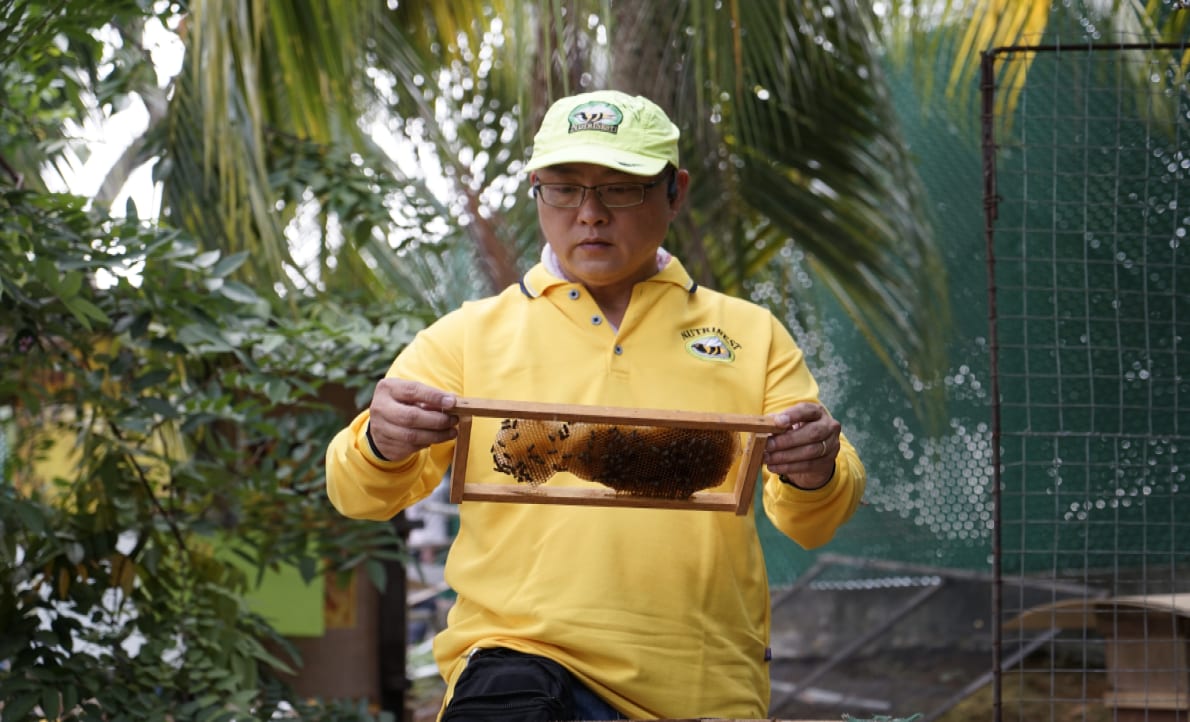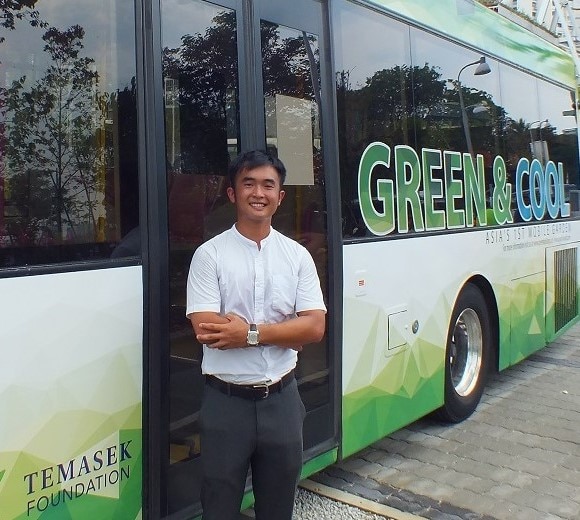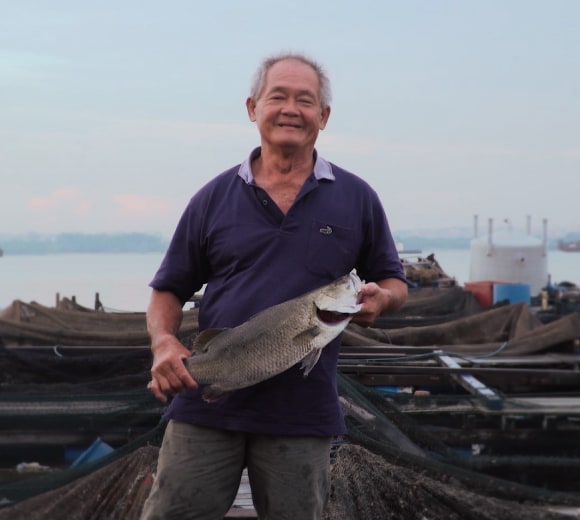Can Dragonflies Keep Mosquitoes Away?
Can Dragonflies Keep Mosquitoes Away?
Singapore researchers are studying if dragonflies are nature’s best pest busters. Discover how they could keep the mosquito population in check.
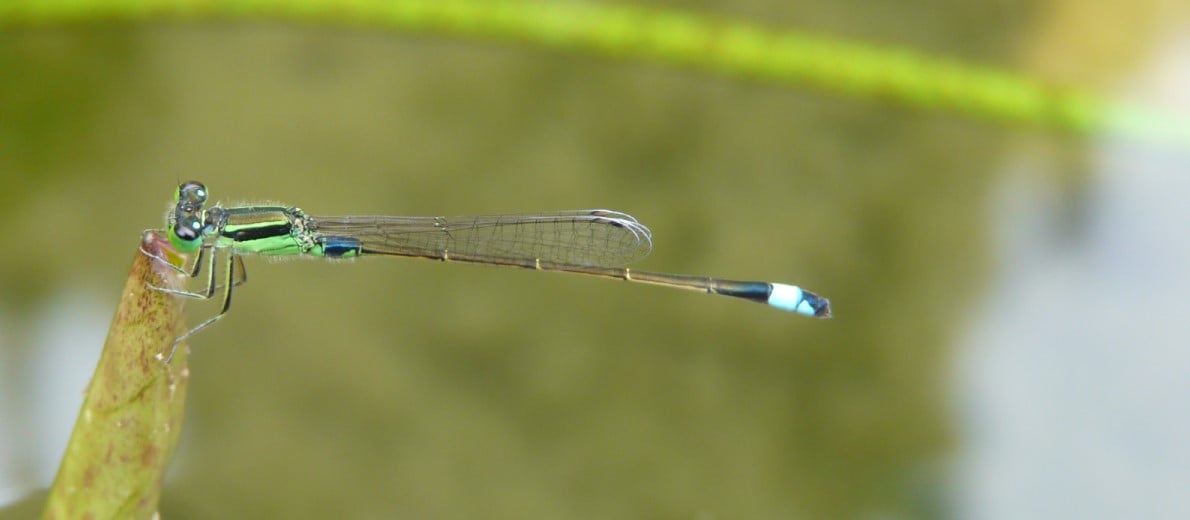
A dragonfly is spotted along the Neram Streams at Lakeside Garden. Photo: National Parks Board
They swoop in at high speeds to capture their prey with their legs, then devour them while flying. Dragonflies are such skilled hunters that one study put their success rate at 90 to 95 per cent.
That and their ravenous appetite for small insects, including mosquitoes, have drawn the interest of researchers in Singapore. As the country faces yet another dengue fever outbreak, dragonflies in urban areas could be a natural solution to keep Aedes aegypti mosquito populations in check.
A team of researchers from the National Parks Board (NParks) and the National University of Singapore (NUS) are collaborating on a study to assess the potential for dragonflies to act as natural pest control against insects such as midges and mosquitoes. They are also investigating habitat factors to determine those that will maximise dragonfly diversity.
This would be a critical breakthrough, given the high number of dengue cases here. The first three months of 2020 have seen over 4,000 cases of dengue fever – about twice the number in the same period last year.
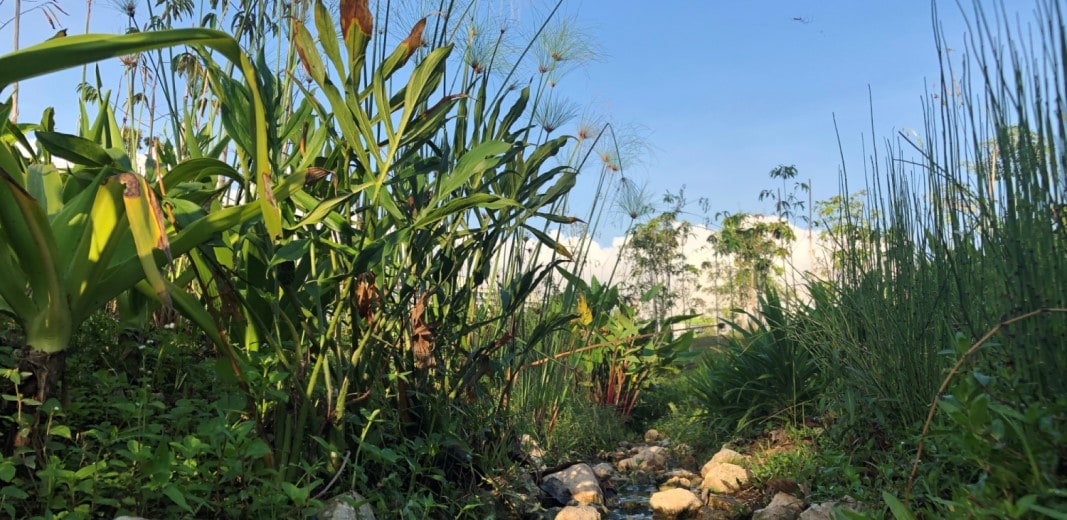
The dragonfly habitat along Neram Streams in Lakeside Garden is a 300-metres-long concrete drain that has been turned into a naturalised riverbed. Photo: National Parks Board
This study, supported by Temasek Foundation, started in early 2019 and is slated for completion in the second half of 2020.
One of the sites in the study is a 0.2ha dragonfly habitat along Neram Streams in Lakeside Garden. The habitat, a 300 m-long concrete drain that has been turned into a naturalised riverbed, is part of the first phase of Jurong Lake Gardens which opened in April 2019.
The habitat is also supported by Temasek Foundation. Some 30 aquatic plant species have been planted there, serving as platforms on which dragonflies can perch to lay their eggs, and for their larvae to emerge onto.
These have had a noticeable positive impact on the dragonflies.
Mr Lim Hock Chuan, Chief Executive of Temasek Foundation Ecosperity said: “As a champion of sustainability, the Foundation supports the goals of this project which are to improve biodiversity and bring dragonflies back into our urban environment. With the knowledge gained from the study, we would like to see dragonflies and the enhanced biodiversity being introduced to more places eventually. This way, we can bring the benefits of the project closer to our community for all to enjoy.”
Building Homes for Dragonflies to Thrive
Singapore is home to some 124 native species of dragonflies and damselflies. While there has been no evidence of a population decline, they can be adversely impacted by water pollution, habitat loss and climate change. Pest control methods such as fogging also kill them.
Hence, aside from the effort at Jurong Lake Gardens, NParks has also carried out habitat enhancement in parks such as Bishan-Ang Mo Kio Park and Kent Ridge Park, said Mr Ngiam.
In Bishan-Ang Mo Kio Park, a canal was converted into a naturalised river, which boosted the diversity of submerged and emergent macrophytes (a type of aquatic plant) in and around the ponds.
Restoring the wetlands and enhancing the habitats helped increase dragonfly and damselfly diversity, and some previously unrecorded species observed since the enhancement include the Common Flangetail, Blue Percher, and Variable Wisp.
Mr Robin Ngiam, Deputy Director of Conservation, National Parks Board
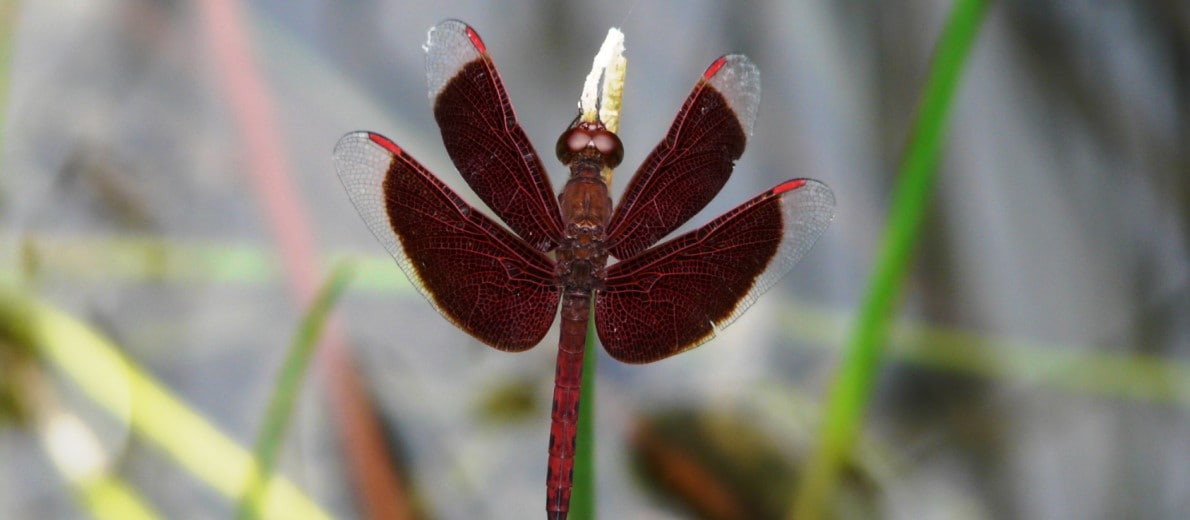
In time, perhaps there will be more dragonflies and damselflies, the buzzing of their wings replacing that of pesky mosquitoes. Photo: National Parks Board
In Kent Ridge Park, floating platforms were constructed and planted with vegetation. The emergent, submerged and floating aquatic plants provide dragonflies with places to perch, roost and lay eggs. Waterside vegetation also offers them shelter and refuge.
“To further optimise dragonfly habitats, the NUS-NParks research team is collecting data on the diversity of dragonflies of over 25 sites and comparing their different habitat parameters and aquatic biodiversity,” said Dr Low Bi Wei, a research fellow at the Department of Biological Sciences at NUS.
Predation rate experiments are also being conducted by feeding mosquito larvae to dragonfly larvae in controlled environments. The researchers compare different species of dragonflies and the number of mosquito larvae each can eat over 24 hours, to determine which might be better at controlling mosquito populations. The number of mosquito larvae introduced to each enclosure is also varied to establish whether the feeding behaviour of dragonflies changes with different prey densities.
The researchers are also conducting gut content analyses by examining the DNA in faecal pellets of adult and larval dragonflies.
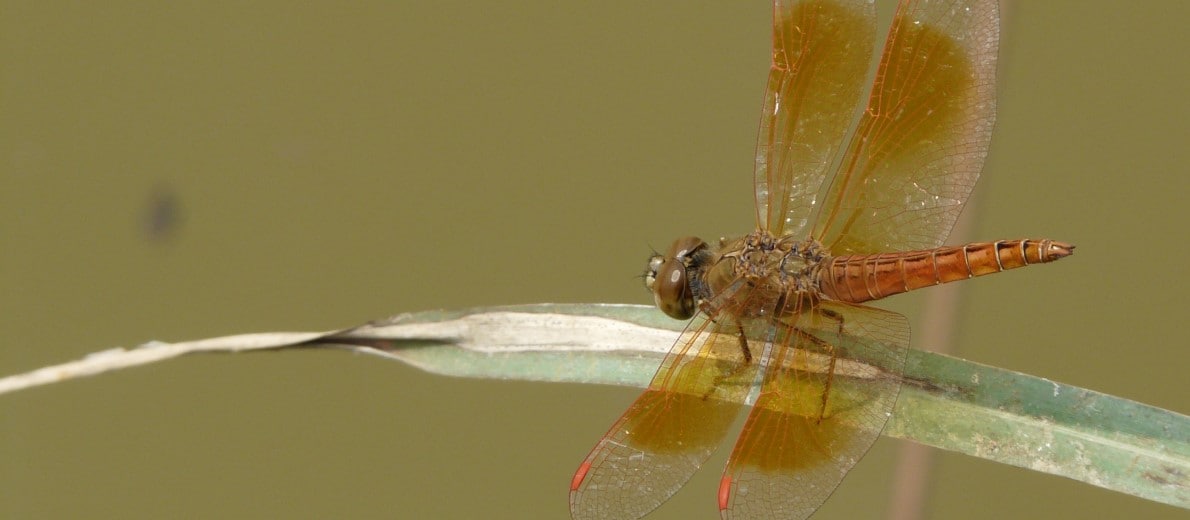
Singapore is home to some 124 native species of dragonflies and damselflies. Photo: National Parks Board
“These are to obtain a better understanding of dragonfly diet and feeding ecology,” said Dr Low.
The findings aim to help formulate guidelines to create optimal dragonfly habitats and direct the planning of future habitat enhancement sites.
“These habitat enhancement efforts would then aid urban wetlands conservation not just for dragonflies but also other wetland species. (They) will also bring Singaporeans closer to nature, and enable them to enjoy the benefits this brings to their well-being,” said Associate Professor Darren Yeo Chong Jinn, also of the Department of Biological Sciences, and the Lee Kong Chian Natural History Museum, at NUS.
In time, perhaps there will be more of the acrobatic insect hunters, the buzzing of their wings replacing that of pesky mosquitoes.

